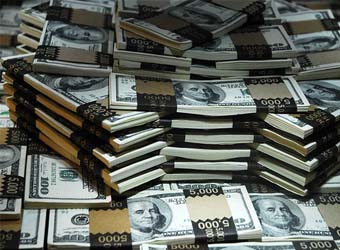The dollar fell broadly on Friday after posting gains the last three weeks as a solid, but not spectacular, U.S. non-farm payrolls report stirred doubts about the path of rate increases next year.
Analysts, however, said the dollar’s weakness was just a short-term correction, a much-needed one, after a strong rally in the wake of Donald Trump’s victory in the U.S. presidential election on Nov. 8.
The dollar index posted its first weekly fall in four weeks against a currency basket, but was still up 1.7 percent for the year. The U.S. currency also slid against the Japanese yen, hitting session lows after the jobs data, but showed gains for a fourth consecutive week.
Nonfarm payrolls increased 178,000 jobs last month, but data for September and October were revised to show that fewer jobs were created than previously reported. Wage growth for the month was just 2.5 percent, compared with expectations of 2.8 percent, unchanged from October.
“I think the market was a little less excited about wage growth this past release, but in general, my view on the dollar has not changed. This is just some profit-taking, some squaring up of positions,” said Ron Waliczek, managing director of OTC FX and interest rates at INTL FCStone Inc in Chicago.
“I do think that the dollar has another leg up, about 6-7 percent toward the 107, 108 level in the dollar index.”
In late trading, the dollar index fell 0.3 percent to 100.77. It was down 0.7 percent for the week. Against the yen, the dollar fell 0.4 percent to 113.69 yen.
Marvin Loh, global markets strategist at BNY Mellon in Boston, said the jobs report did not provide much clarity on future U.S. interest rate increases.
“We think there are enough yellow flags to support the slow and shallow path endorsed by the Fed, which expected only 2 hikes this past September,” Loh added.
The euro, on the other hand, was flat against the dollar at $1.0657, ahead of Sunday’s Italian referendum. The referendum could reject constitutional reforms on which Prime Minister Matteo Renzi has staked his political future.
Renzi’s departure could destabilise Italy’s fragile banking system and be taken as another sign of rising anti-establishment sentiment around the world, potentially eroding investor confidence in the euro.
The euro’s one-week implied volatility, a gauge of the currency’s expected movements in either direction, rose on Friday to the highest level since Britain’s June vote to leave the European Union.
Source: Reuters


